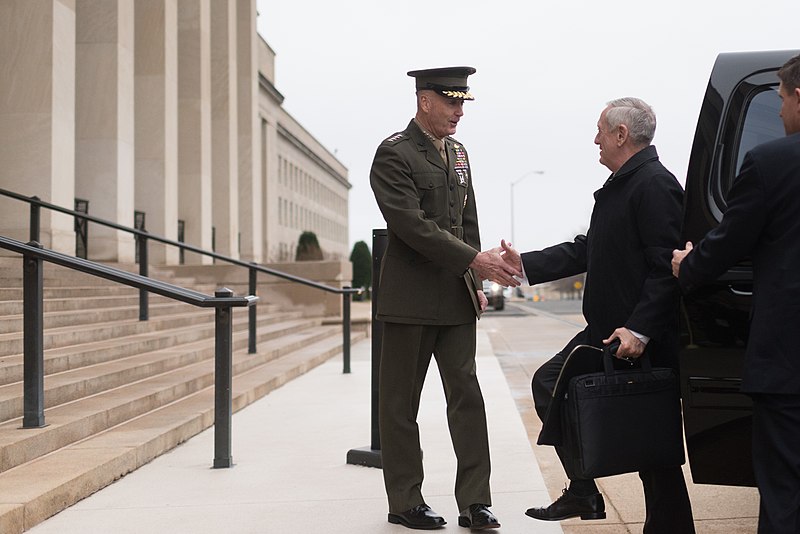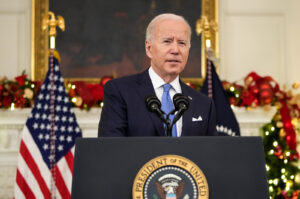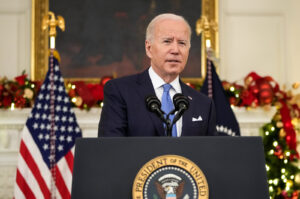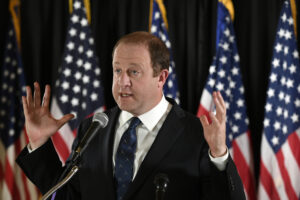Joseph Dunford Defends Multilateralism
5 min read
Since President Donald Trump began his campaign for the Presidency in 2015, he has received unceasing criticism for his “America First” approach toward United States foreign policy. Trump differs from any of his post-World War II predecessors in that he has taken a more unilateral stance on international affairs.
Rather than adopting traditional multilateralism, which utilizes alliances formed by international organizations like the United Nations and the North Atlantic Treaty Organization (NATO) to pursue foreign policy goals, Trump seeks to “[reassert] American sovereignty and the right of all nations to determine their own futures.”
Trump’s “America First” Foreign Policy
During his 2016 presidential campaign, Trump revealed his opinions towards the multilateral institutions that have defined American foreign policy since they were established following World War II. During an interview with The New York Times in March 2016, Trump labeled NATO “obsolete,” and has argued that “it was really designed for the Soviet Union, which doesn’t exist anymore…It wasn’t designed for terrorism.”
Less than a month later, during a campaign rally in Racine, Wisconsin, Trump criticized American allies in NATO for “not paying their fair share.” He argued “that we are protecting them, giving them military protection and other things, and they’re ripping off the United States…Either they have to pay for past deficiencies, or they have to get out.”
During the same rally, Trump commented on the United Nations: “Where do you ever see the United Nations? Do they ever settle anything? It’s just a political game. The United Nations – I mean the money we spend on the United Nations.”
Since taking office in 2016, the Trump Administration has taken action to distance the United States from multilateral institutions and agreements. The administration has withdrawn the United States from the Paris Climate Accord, the Iran Nuclear Deal, and the Trans-Pacific Partnership while defunding the United Nations and threatening to withdraw from NATO.
Criticism from the Foreign Policy Community
Trump’s comments and subsequent actions have resulted in criticism from a number of foreign policy experts who view multilateralism as the cornerstone to American foreign policy. Former National Security Council member Alex Pascal argues that Trump has used “the downsides” of multilateralism, such as the loss of American jobs to “cheap labor and less regulation overseas,” in order to “drive a wedge around multilateralism and make America isolationist again.”
Similarly, Michele A. Flournoy, who served as undersecretary of defense during the Obama Administration, told The New York Times that removing the United States from NATO “would be one of the most damaging things that any president could do to U.S. interests…It would destroy 70-plus years of painstaking work across multiple administrations, Republican and Democratic, to create perhaps the most powerful and advantageous alliance in history.”
Military Officers Defend Multilateralism
In addition to criticism from public officials, the Trump Administration’s attempt to shift foreign policy away from multilateralism has caused a surprising response from military officers, both active and retired.
Typically, high-ranking military officers refrain from publicly commenting on the policies of sitting presidents. Officers are sworn to serve the commander-in-chief regardless of partisan politics and, therefore, do not tend to share their policy opinions publicly, even in retirement. However, Trump’s criticism of American allies has resulted in public testaments by military officers who believe that these alliances are vital in attaining international influence and confronting the country’s foreign adversaries.
In his resignation letter addressed to President Trump, former Secretary of Defense James Mattis asserted his “core belief” that “our strength as a nation is inextricably linked to the strength of our unique and comprehensive system of alliances and partnerships…We must do everything possible to advance an international order that is most conductive to our security, prosperity and values, and we are strengthened in this effort by the solidarity of our alliances.”
Mattis inferred that his conviction is not shared by Trump, writing, “Because you have the right to have a Secretary of Defense whose views are better aligned with yours on these and other subjects, I believe it is my time to step down from my position.”
Former Supreme Allied Commander of NATO James G. Stavridis has also emphasized the vitality of multilateralism. Following Trump’s threat to pull-out of NATO, Stavridis proclaimed that doing so would be “a geopolitical mistake of epic proportion. Even discussing the idea of leaving NATO – let alone actually do so – would be the gift of the century for Putin.”
In October 2019, during a broadcasted discussion with Madeleine Albright, retired Army General and former Secretary of State Colin Powell broadly declared, “our foreign policy is in shambles right now.” This past August, during his endorsement speech for Democratic Presidential Nominee Joe Biden, Powell avowed that the former Vice President “will restore America’s leadership in the world and restore the alliances we need to address the dangers that threaten our nation, from climate change to nuclear proliferation,” implying that the Trump Administration has deteriorated both.
Joseph Dunford Shares His Views
The most recent officer to share his concern over Trump’s unilateral foreign policy is retired Marine Corp General Joseph Dunford, who served as Chairman of the Joint Chiefs of Staff under the President from 2015 to 2019.
In a recent interview with The Boston Globe, Dunford defended the international institutions and organizations that Trump has often denounced. “While some believe that there needs to be changes in the world order, what I would argue is that we had a vision for what a world order ought to be after World War II,” said Dunford. “That structure, that order, if you will, brought about peace and security for a long period of time.”
Similar to Mattis, Dunford trusts that the “structure” and “world order” maintained by international institutions like the United Nations and NATO will continue to play a critical role throughout the world, whether or not the United States participates. These institutions “can advance our diplomatic, our economic, our intelligence, and our security interests,” argues Dunford. In fact, Dunford believes that “if the U.S. doesn’t lead in developing those structures…somebody else will lead in doing that and there are only two real candidates right now. One is Russia and the other is China.”
Despite his defense of institutions that promote multilateralism, Dunford refuses to criticize the President directly, citing his belief that he should “behave in public the same way I did on active duty…I should not engage in partisan politics.” The retired General went on to admit, “The President is doing it his way. I’m not going to, as a military leader, comment on how the President is approach it. But I would argue that the value of these relationships is as critical in the future as it has been in the past.”
Conclusion
The position of Dunford and many experienced military officers like Powell, Mattis, and Stavridis, is that international institutions and the alliances they produce are essential to American interests, both at home and abroad. This is in stark contrast to Trump, who has argued that NATO is “ripping off the United States” and that the United Nations is nothing more than “a political game.” While they may hesitate to condemn the President directly, their opposition to the Trump Administration’s foreign policy has been made clear.







